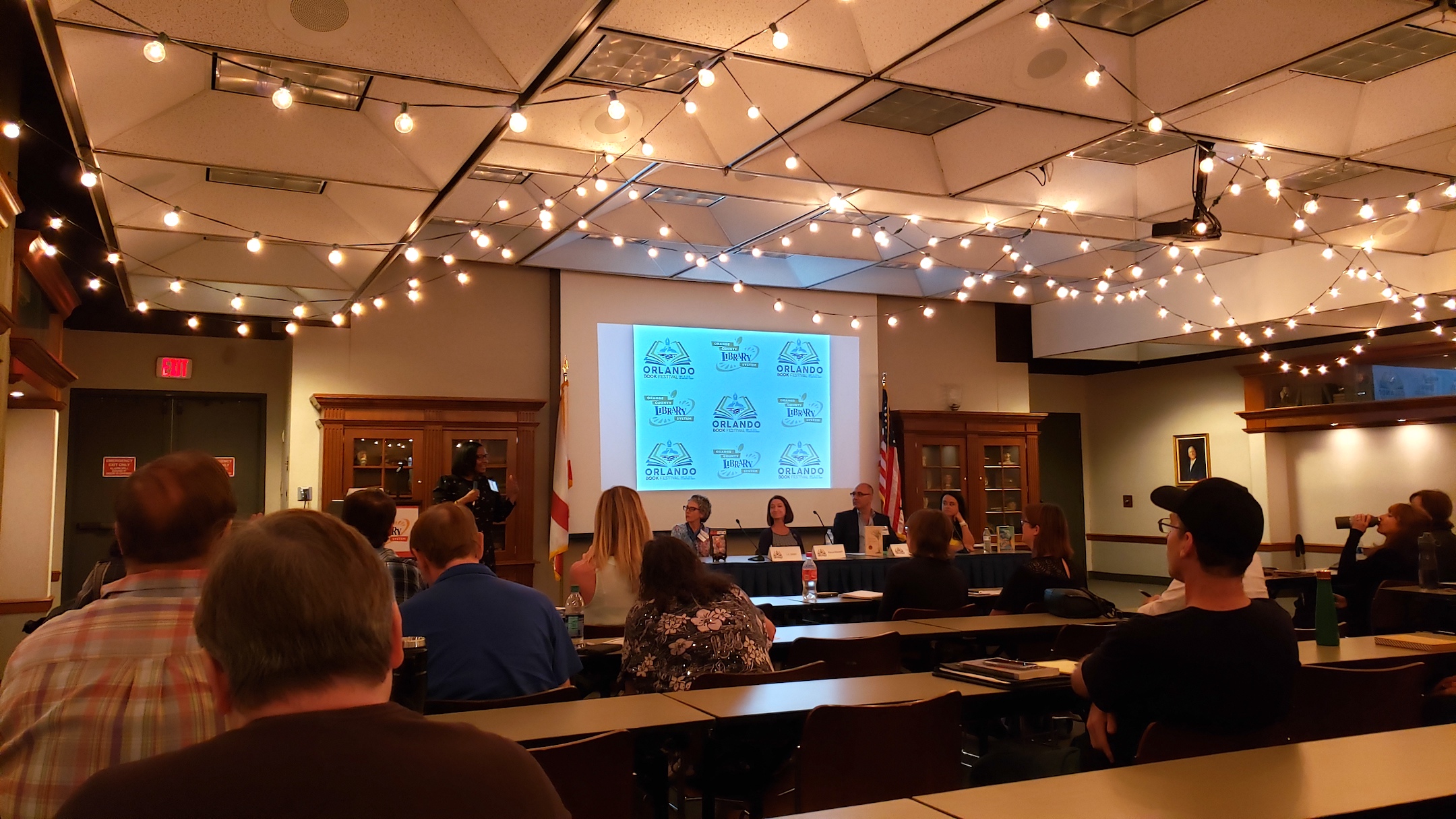 In the middle of the month, I took a one-day vacation to the OCLS Book Festival. I’m calling this a vacation because even though I absolutely wrote that day, and even though I was taking notes in the pursuit of my writing career, the event, schedule, and whole day was a wonderful pause on my go-go-go anxiety and I was instead able to go-go-go with the flow and ended up listening to some wonderful speakers and renewing my motivation to write.
In the middle of the month, I took a one-day vacation to the OCLS Book Festival. I’m calling this a vacation because even though I absolutely wrote that day, and even though I was taking notes in the pursuit of my writing career, the event, schedule, and whole day was a wonderful pause on my go-go-go anxiety and I was instead able to go-go-go with the flow and ended up listening to some wonderful speakers and renewing my motivation to write.
The keynote speakers were Daniel José Older and Delilah Dawson, both authors who I’m only tangentially aware of (because they’ve written Star Wars books, ahem). Both keynotes were exceptional (Daniel’s was an especially fantastic way to kick off the day) and both left me jazzed to write. I left the Book Festival feeling recharged, more motivated, and more confident in my ability to do the work. Refilling my motivational and creative wells was exactly the kind of vacation I needed to get myself back to the novel planning I had put aside the week before.
Following the Book Festival, my friend and I decided to stay out longer to write and then get dinner. The continued flow of the day, the easy decisions and laid back attitude reminded me of what writing is like when everything is flowing smoothly. When I’m not worried about where the story will end, how polished it will look, or what I’m going to do when the story is done, everything has room to breathe. It’s a pretty different state of being from my normal setting, so the escape was welcome and, honestly, necessary. Living with anxiety as a writer and freelancer is a pretty harrowing thing (my disorder does not mix well with the uncertain, unstable life I’ve chosen), so having these moments of peace bolstering my career is essential to keeping myself moving forward.
For full access to The Write Life, sign up on Patreon for $1 or more per month. You’ll also receive a personalized thank you in a future edition of The Write Life.
